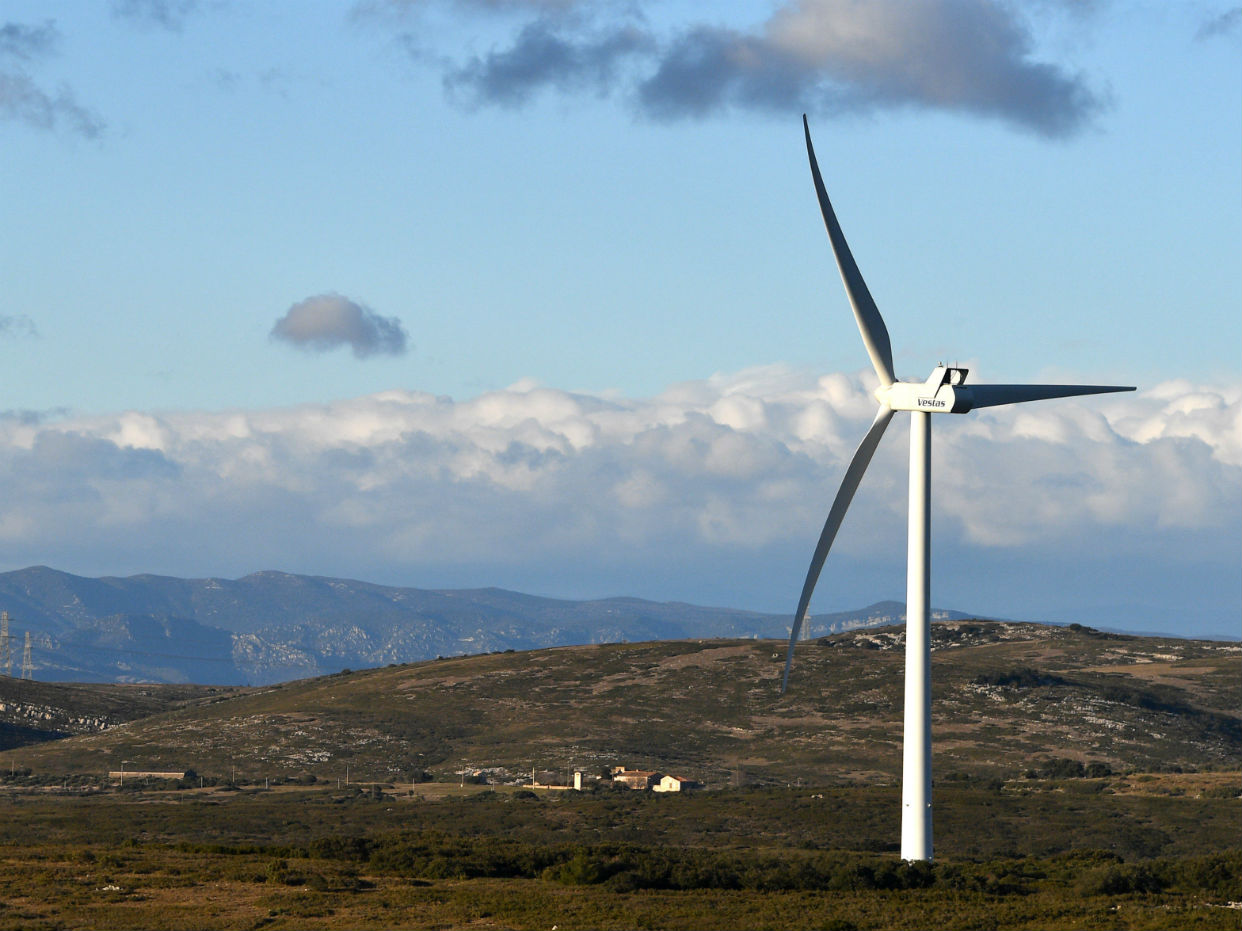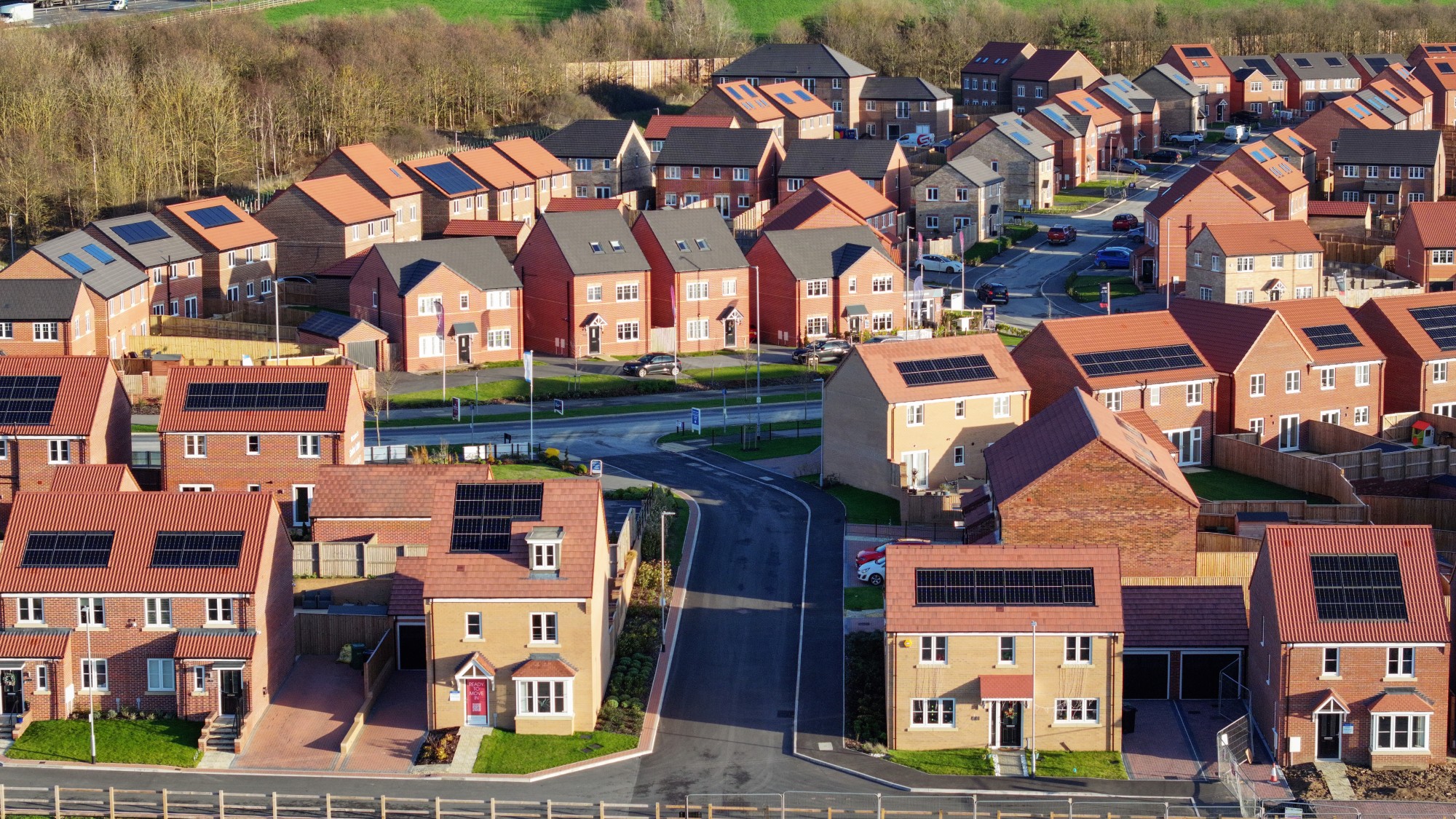Pros and cons of onshore wind farms
Rishi Sunak ‘stuck between two Tory wings’ over proposed law changes to allow more turbines on land

A free daily email with the biggest news stories of the day – and the best features from TheWeek.com
You are now subscribed
Your newsletter sign-up was successful
The prime minister appears set to roll back on his opposition to onshore wind farms amid a looming rebellion by Tory MPs.
Rishi Sunak pledged during the party leadership battle this summer to not “relax the ban on onshore wind in England”. But Downing Street this week “fuelled expectations of a U-turn” by saying the PM would “engage” with more than 30 Conservatives backing proposed legal changes to lift the de-facto ban on turbines on land, said The Independent.
Former Tory leaders Boris Johnson and Liz Truss are among the rebels supporting ex-cabinet secretary Simon Clarke’s pro-wind amendment to the Levelling Up Bill. Labour is expected to back Clarke’s proposals too, and is also tabling a separate and more “beefed-up amendment” on onshore wind, according to The Guardian.
The Week
Escape your echo chamber. Get the facts behind the news, plus analysis from multiple perspectives.

Sign up for The Week's Free Newsletters
From our morning news briefing to a weekly Good News Newsletter, get the best of The Week delivered directly to your inbox.
From our morning news briefing to a weekly Good News Newsletter, get the best of The Week delivered directly to your inbox.
The row has left Sunak “stuck between two wings” of his own party, said the paper, as the rival sides continue to debate the pros and cons of using onshore wind farms to help transition to zero-carbon energy generation.
1. Pro: small carbon footprint
Although manufacturing and operating wind turbines produces some emissions carbon, the carbon footprint of wind energy is “relatively small”, according to LSE. Greenhouse gas emissions created by the manufacture, transportation and installation of onshore wind turbines total around 9 gCO2/KWh on average, the university reported.
By contrast, the average footprint of gas power generators is around 450 gCO2/KWh, while coal power generators around 1,050 gCO2/KWh.
2. Con: intermittent source
Turbines can only generate electricity when the wind is blowing at sufficient strength, so “fossil fuel-based power supply is needed as back-up, which can temporarily increase greenhouse gas emissions”, said LSE. However, the university added, other technologies, “such as inter-linkages with other countries’ grids, energy storage and electricity demand management, are expected to help tackle intermittency in the future”.
A free daily email with the biggest news stories of the day – and the best features from TheWeek.com
At this stage, said National Grid, we need a “mix of solutions”, including “other renewable energy sources, as well as receiving clean energy through interconnectors and improved management of energy demand”.
3. Pro: cost competitive
The infrastructure required for onshore wind power is “significantly less expensive than what’s required for offshore wind”, said global recruitment agency Brunel. “In some cases, it’s half the cost and can provide investment payback as quickly as two years,” added the company, which specialises in the energy and mining sector.
A 2015 analysis by Bloomberg New Energy Finance comparing the costs involved in renewable energy and fossil fuels also found onshore wind to be “fully competitive” in many regions of the world. The research showed that the cost of both wind and solar power was getting cheaper, “helped by cheaper technology but also by lower finance costs , while coal and gas became more expensive”.
4. Con: visual impact
Onshore wind farms can be an “eyesore on the landscape”, said Brunel, and wind turbines built on high ground to generate more power can be especially “imposing on surrounding residential areas”. Turbines are also “typically more spread out than other large-scale energy infrastructure projects”, said LSE, “so can affect a larger area”.
Noise is another issue: wind turbines can cause noise pollution if located near a residential area. However, government studies have found that noise levels are comparatively low and generally do not significantly impact nearby residents.
5. Pro: quick installation
Wind farms are quicker and easier to set up than many alternatives. While a nuclear power station might take “in excess of 20 years to construct from the initial planning permission phase”, said energy-saving advice site The GreenAge, a wind turbine can “go up and start providing electricity to the grid in a matter of months”.
6. Con: threat to wildlife
Some campaigners have voiced concerns that birds and bats may collide with turbines. But the Royal Society for the Protection of Birds (RSPB) has pointed to the bigger picture, by warning that “climate change poses the single greatest long-term threat to birds and other wildlife”.
The charity has argued that “switching to renewable energy now, rather than in ten or 20 years, is essential if we are to stabilise greenhouse gases in the atmosphere at safe levels”.
Chas Newkey-Burden has been part of The Week Digital team for more than a decade and a journalist for 25 years, starting out on the irreverent football weekly 90 Minutes, before moving to lifestyle magazines Loaded and Attitude. He was a columnist for The Big Issue and landed a world exclusive with David Beckham that became the weekly magazine’s bestselling issue. He now writes regularly for The Guardian, The Telegraph, The Independent, Metro, FourFourTwo and the i new site. He is also the author of a number of non-fiction books.
-
 How to Get to Heaven from Belfast: a ‘highly entertaining ride’
How to Get to Heaven from Belfast: a ‘highly entertaining ride’The Week Recommends Mystery-comedy from the creator of Derry Girls should be ‘your new binge-watch’
-
 The 8 best TV shows of the 1960s
The 8 best TV shows of the 1960sThe standout shows of this decade take viewers from outer space to the Wild West
-
 Microdramas are booming
Microdramas are boomingUnder the radar Scroll to watch a whole movie
-
 The plan to wall off the ‘Doomsday’ glacier
The plan to wall off the ‘Doomsday’ glacierUnder the Radar Massive barrier could ‘slow the rate of ice loss’ from Thwaites Glacier, whose total collapse would have devastating consequences
-
 Can the UK take any more rain?
Can the UK take any more rain?Today’s Big Question An Atlantic jet stream is ‘stuck’ over British skies, leading to ‘biblical’ downpours and more than 40 consecutive days of rain in some areas
-
 As temperatures rise, US incomes fall
As temperatures rise, US incomes fallUnder the radar Elevated temperatures are capable of affecting the entire economy
-
 The world is entering an ‘era of water bankruptcy’
The world is entering an ‘era of water bankruptcy’The explainer Water might soon be more valuable than gold
-
 Zero-bills homes: how you could pay nothing for your energy
Zero-bills homes: how you could pay nothing for your energyThe Explainer The scheme, introduced by Octopus Energy, uses ‘bill-busting’ and ‘cutting-edge’ technology to remove energy bills altogether
-
 Climate change could lead to a reptile ‘sexpocalypse’
Climate change could lead to a reptile ‘sexpocalypse’Under the radar The gender gap has hit the animal kingdom
-
 The former largest iceberg is turning blue. It’s a bad sign.
The former largest iceberg is turning blue. It’s a bad sign.Under the radar It is quickly melting away
-
 How drones detected a deadly threat to Arctic whales
How drones detected a deadly threat to Arctic whalesUnder the radar Monitoring the sea in the air